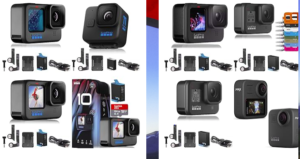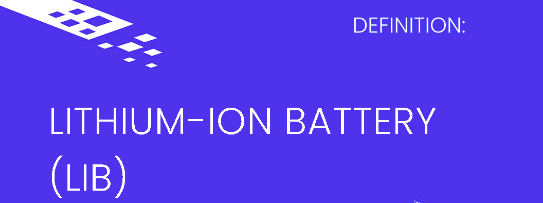
Lithium-ion battery. What is a lithium ion battery?
A lithium-ion battery is a rechargeable battery that contains lithium ions as the electrolyte. Because they have a higher energy density and a lower self-discharge rate than other types of rechargeable batteries, they are preferred for portable gadgets and electric vehicles. They are very lightweight and have a long service life. They are, however, more costly than other types of batteries and can be destroyed if they are overcharged or overheated.
How are lithium ion batteries made?
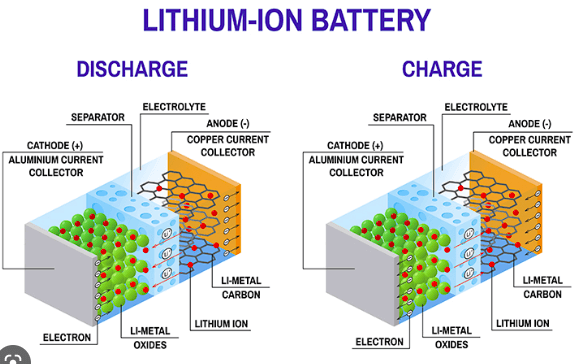
The lithium-ion battery manufacturing process generally consists of multiple stages:
Raw materials:
The basic ingredients for a lithium-ion battery, which comprise lithium cobalt oxide (LiCoO2), lithium manganese oxide (LiMn2O4), or lithium iron phosphate (LiFePO4) for the cathode and graphite for the anode, are obtained first.
Mixing:
To make a paste, the cathode and anode materials are combined with a conductive agent and a binder. The cathode and anode are then formed by spreading this mixture over thin aluminum or copper foil.
Rolling: The cathode and anode foils are rolled together with a separator in between to make a long “jelly roll” of material.
Cutting:
To make the individual battery cells, the jelly roll is sliced into little circles or rectangles.
Assembly:
Individual battery cells are then combined to form a battery pack, which may also include extra components such as a protective circuit and a thermistor.
Testing:
The battery pack is checked to verify it satisfies all requirements and safety regulations.
Packaging:
The completed battery pack is packed and sent to the customer.
It’s important to note that this method might differ based on the company, technology, and kind of battery used. Some manufacturers employ more sophisticated processes, such as coating the electrodes with nanoparticles, to increase battery performance and safety.
What are the applications of lithium-ion batteries?
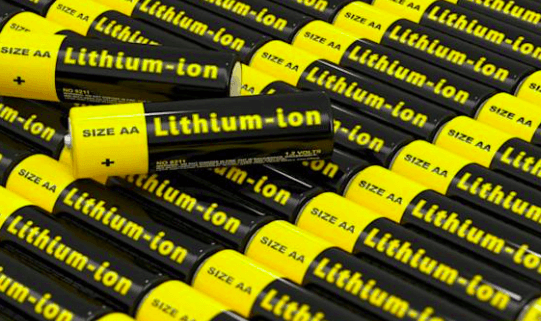
Because of its high energy density and extended service life, lithium-ion batteries are widely employed in a wide range of applications. Among the most popular applications are:
Electronics for portable use:
Because they can store a lot of energy in a tiny container, lithium-ion batteries are extensively used in laptops, smartphones, tablets, and other portable devices.
Electric Vehicles:
To power the electric motor in electric automobiles, motorbikes, E-bikes and other vehicles, lithium-ion batteries are employed.
Powerful instruments:
Because they have a long service life and can be recharged fast, lithium-ion batteries are utilized in cordless power tools such as drills and saws.
Energy from renewable sources:
Lithium-ion batteries are used to store energy in solar and wind power systems for later consumption.
Medical supplies:
Because lithium-ion batteries have a long service life and can be recharged fast, they are utilized in portable medical equipment such as ventilators.
Military hardware:
Because lithium-ion batteries are lightweight and can store a lot of energy, they are employed in military equipment such as drones and communication devices.
Industrial machinery:
Lithium-ion batteries are used to store energy in a variety of industrial equipment, including forklifts, unmanned aerial vehicles, drones, and even submarines.
What are some of the benefits of lithium ion batteries?
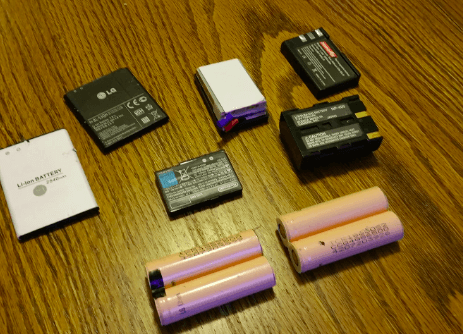
There are various advantages to using lithium-ion batteries over other types of batteries, including:
Energy density is high:
Because lithium-ion batteries have a high energy density, they can store a large amount of energy in a tiny container. As a result, they are perfect for mobile electronics and electric cars.
Service life is extended:
Lithium-ion batteries have a long service life, lasting anywhere from 3 to 10 years depending on usage, charge and discharge rate, and temperature.
Low rate of self-discharge:
Because lithium-ion batteries have a low self-discharge rate, they lose relatively little charge while they are not in use. This implies that they may be kept for extended periods of time without losing their charge.
Lightweight:
Because lithium-ion batteries are very light, they are perfect for portable gadgets and electric vehicles.
There is no memory effect:
Because lithium-ion batteries lack the “memory effect” that certain other types of batteries have, they do not need to be totally depleted before recharging.
Easy to maintain:
Unlike lead-acid batteries, which require frequent watering and storage in a cool, dry environment, lithium-ion batteries require relatively little care.
High efficiency:
Lithium-ion batteries are extremely efficient, converting a considerable portion of the stored energy into useable power.
Lithium-ion batteries are readily accessible and come in a number of sizes and capacities, making them appropriate for a variety of applications.
It’s worth mentioning that these benefits have fueled the widespread use of lithium-ion batteries in a variety of applications, including portable gadgets, electric cars, and renewable energy storage systems.
What are the disadvantages of lithium batteries?

The susceptibility of lithium-ion batteries to high temperatures is one of its key drawbacks. High temperatures can damage the electrolyte, resulting in decreased performance and a shorter service life. High temperatures can potentially cause the battery to malfunction or even catch fire in severe circumstances.
Another problem of lithium-ion batteries is that they can be destroyed if they are overcharged or deeply depleted. This might cause the battery to fail or shorten its life. Lithium-ion batteries are often provided with a protective circuit that prevents overcharging and deep discharge to avoid this.
Lithium-ion batteries are often provided with a protective circuit that prevents overcharging and deep discharge to avoid this.
Finally, lithium-ion batteries are not entirely ecologically benign because they contain harmful and possibly dangerous elements, and disposing of them is difficult.
It’s worth mentioning that these drawbacks have been lessened over time, and newer technologies have addressed some of these concerns.
How long will a lithium battery last?
The longevity of a lithium-ion battery depends on a number of variables, including the battery’s type, usage, and environmental exposure.
A well-maintained lithium-ion battery can have a service life of 3-5 years on average when used in portable electronics and electric vehicles.
This might be longer or shorter, though, depending on usage, charge and discharge rates, temperature, and other variables.
For instance, a lithium-ion battery used in a portable gadget would last less time than one in an electric vehicle since the latter sees less charges and discharges.
It’s worth mentioning that avoiding overcharging and deep discharge, as well as limiting exposure to high temperatures, can all help to increase the life of a lithium-ion battery. Additionally, utilizing a high-quality battery charger and avoiding the use of counterfeit or low-quality batteries helps extend the battery’s service life.
What is the largest problem with lithium-ion batteries?
The largest problem with lithium-ion batteries is safety. Lithium-ion batteries have been known to catch fire or explode under certain conditions, such as overcharging, deep discharge, exposure to high temperatures, or damage to the battery cells. These incidents can cause injury, damage to property, and even death.
The risk of thermal runaway, where a chain reaction of thermal events can occur and cause the battery to overheat, is one of the major safety concerns with lithium-ion batteries. This can happen when the electrolyte in the battery overheats, which can cause the separator to break down and lead to a short circuit. This can result in a fire or explosion.
Another problem is that lithium-ion batteries contain toxic and potentially hazardous materials, which can be harmful if they are not handled or disposed of properly. This can be a significant issue in cases where the batteries are used in large quantities, such as in electric vehicles or renewable energy storage systems.
It’s worth noting that the industry and researchers have been working to address these issues by developing new technologies and safety standards to improve the performance and safety of lithium-ion batteries. Advancements in materials, cell designs, and battery management systems have been developed to improve the safety and performance of the batteries.
How long can a lithium battery go without being charged?
A lithium-ion battery’s lifespan without charging is determined by various factors, including the type of battery, how it is used, and the circumstances it is subjected to.
Because lithium-ion batteries have a low self-discharge rate, they lose relatively little charge while they are not in use. This implies that a well-maintained lithium-ion battery can survive several months, if not a year, without losing much charge.
However, it is important to note that the battery’s capacity will diminish with time, which means that it will store less and less charge as the time between charges grows. This is referred to as “capacity fade,” and it is a normal process for any rechargeable battery.
Furthermore, variables such as exposure to high temperatures, which can cause the electrolyte to deteriorate and diminish the battery’s capacity, can limit the lifespan of a lithium-ion battery.
It’s worth mentioning that avoiding high temperatures, using a decent quality battery charger, and avoiding using fake or low-quality batteries can all help to increase the life of a lithium-ion battery.
How do you tell if a battery is lithium?
There are several ways to tell if a battery is lithium-ion:
- Check the label: Most lithium-ion batteries will have “Li-ion” or “Li-poly” written on the label or packaging, indicating that the battery uses lithium-ion chemistry.
- Check the voltage: Lithium-ion batteries typically have a voltage of 3.6-3.7 volts per cell, while other types of batteries have a lower voltage.
- Check the size and shape: Lithium-ion batteries can come in different shapes and sizes, but they are often smaller and lighter than other types of batteries with the same capacity.
- Check the service life: Lithium-ion batteries typically have a longer service life than other types of batteries.
- Check with a multimeter: You can use a multimeter to measure the voltage of the battery to confirm it’s a lithium-ion battery.
It’s worth noting that not all lithium batteries are lithium-ion batteries, some lithium batteries use other chemistries, such as lithium metal, lithium-ion polymer, lithium iron phosphate, etc.
It’s always best to check the packaging and the label for specific information about the battery’s chemistry, voltage, capacity, and other important details.
Do you need a special charger for 12v lithium battery?
Yes, a special charger is typically needed for charging a 12V lithium-ion battery. This is because lithium-ion batteries have specific charging requirements that must be met in order to charge them safely and efficiently.
A lithium-ion battery charger is designed to provide the correct charging voltage and current for the battery, and to monitor the charging process to prevent overcharging or deep discharge.
A typical lithium-ion battery charger will have several stages of charging, including a constant current stage, where the charger provides a constant current to the battery; a constant voltage stage, where the charger maintains a constant voltage across the battery; and a float stage, where the charger maintains a lower voltage to keep the battery at a full charge.
It’s important to use the appropriate charger for your 12V lithium-ion battery, as using the wrong charger can damage the battery or even be a safety hazard. It’s also important to follow the manufacturer’s instructions for charging and using the battery to ensure proper operation and safety.
Can lithium ion batteries be recycled?
Yes, lithium can be recycled, but the recycling of lithium-ion batteries is still relatively limited compared to other materials. However, recycling lithium-ion batteries can be beneficial for several reasons:
- Resource conservation: recycling lithium-ion batteries can help conserve resources by recovering the valuable metals and materials used in the batteries, such as lithium, cobalt, nickel, and lithium-ion electrolytes.
- Environmental protection: recycling lithium-ion batteries can help reduce the environmental impact of mining for raw materials and the disposal of used batteries.
- Economic benefits: recycling lithium-ion batteries can provide economic benefits by creating jobs and reducing the cost of raw materials.
There are various methods to recycle lithium-ion batteries, such as mechanical, pyrometallurgical, hydrometallurgical and biometallurgical processes. The choice of method depends on the type of battery, the composition of the materials, and the desired end product.
However, despite the benefits of lithium recycling, it is still a challenging task, as the recycling process is complex, and the batteries can be difficult to disassemble and recycle. Additionally, the cost of recycling can be high, which can make it less economically viable.
It’s worth noting that Governments and industries are investing in research and development of new recycling technologies, in order to increase the recycling rate of lithium-ion batteries, reduce the environmental impact and create new opportunities.
Are all car batteries lithium ion batteries?
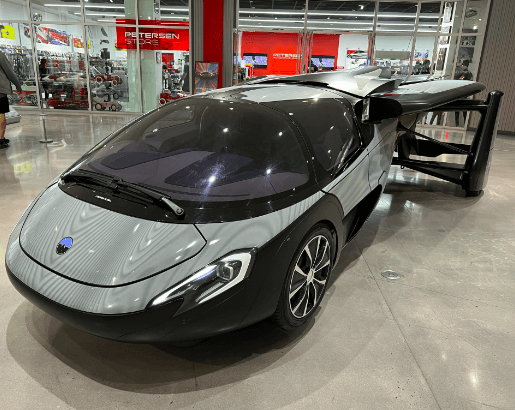
No, not all car batteries are lithium-ion. There are several types of batteries that can be used in cars, including lead-acid batteries, nickel-metal hydride batteries, and lithium-ion batteries.
Lead-acid batteries are the most common type of car battery, and have been used in cars for over a century. They are relatively inexpensive and have a relatively long lifespan, but they are also heavy and have a relatively low energy density.
Nickel-metal hydride (NiMH) batteries are also used in cars, particularly in hybrid electric vehicles. They are lighter and have a higher energy density than lead-acid batteries, but they are also more expensive.
Lithium-ion batteries are increasingly being used in electric vehicles and hybrids, as they have a higher energy density than other types of batteries and a longer service life. However, they are also more expensive than other types of batteries and more sensitive to overcharging, overheating and over-discharge.
It’s worth noting that the choice of a battery for a car depends on the specific application and the requirements of the vehicle. Some vehicles may work better with lead-acid batteries, while others may work better with lithium-ion batteries or nickel-metal hydride batteries.
Do laptops have lithium batteries?

Yes, most laptops today use lithium-ion batteries. Lithium-ion batteries are widely used in portable electronic devices, including laptops, because they have a high energy density, a long service life, and a low self-discharge rate. They also have a relatively low rate of capacity fade compared to other types of batteries, which means they can maintain a high capacity for a longer period of time.
Lithium-ion batteries are also relatively lightweight and have a low profile, which makes them ideal for use in laptops. They also have a relatively low self-discharge rate, which means they can hold a charge for a long time, even when not in use.
It’s worth noting that not all laptops use lithium-ion batteries, some laptops may use other types of batteries, such as nickel-cadmium batteries, but they are becoming increasingly rare.
It’s always best to check the specifications of a laptop or consult the manufacturer’s website for information about the battery type and usage.
Can I replace my lead acid battery with lithium-ion battery?
It is possible to replace a lead-acid battery with a lithium-ion battery, but it’s important to ensure that the lithium-ion battery is compatible with the specific device or application. Additionally, the capacity, voltage, and physical dimensions of the lithium-ion battery should match the capacity, voltage and the physical dimensions of the lead-acid battery.
Lithium-ion batteries have several advantages over lead-acid batteries, including:
- Higher energy density: Lithium-ion batteries can store more energy in a smaller package than lead-acid batteries, which makes them ideal for portable devices and electric vehicles.
- Longer service life: Lithium-ion batteries typically have a longer service life than lead-acid batteries, which means they can be used for a longer period of time before needing to be replaced.
- Low self-discharge rate: Lithium-ion batteries have a low self-discharge rate, which means they lose very little charge when not in use. This means they can be stored for long periods without losing their charge.
- No memory effect: Lithium-ion batteries do not have the “memory effect” that some lead-acid batteries have, which means they do not need to be fully discharged before recharging.
However, lithium-ion batteries also have some disadvantages compared to lead-acid batteries, such as:
- Cost: Lithium-ion batteries are generally more expensive than lead-acid batteries, which can make them less cost-effective for some applications.
- Temperature tolerance: Lead-acid batteries can operate better in cold temperatures than lithium-ion batteries.
- Safety: Lithium-ion batteries have a higher risk of thermal runaway, which can cause the battery to overheat and potentially cause a fire or explosion.
Can I charge my lithium battery with solar panels?
Yes, it is possible to charge a lithium-ion battery with solar panels. Solar panels convert sunlight into electricity, which can be used to charge a battery. In fact, many solar power systems include a lithium-ion battery for energy storage.
To charge a lithium-ion battery with solar panels, you will need a solar charge controller, which is a device that regulates the charging of the battery from the solar panels. The solar charge controller ensures that the battery is charged at the correct voltage and current, and prevents overcharging or deep discharge of the battery.
It’s worth noting that the amount of energy that can be stored in a lithium-ion battery is limited, so it’s important to size the solar panel array and battery storage capacity appropriately for the specific application. Additionally, the efficiency of the solar panels and the charge controller, as well as the weather conditions, will affect the amount of energy that can be generated and stored in the battery.
It’s always best to consult the manufacturer’s instructions and specifications for the solar panels, charge controller and battery, to ensure proper operation and safety.
Can electric cars be made without lithium-ion battery?
It is possible to make electric vehicles (EVs) without using lithium-ion batteries, but it would be challenging and less efficient. Lithium-ion batteries are currently the most common type of battery used in EVs because they have a high energy density and a long service life, which makes them ideal for electric vehicles.
Other types of batteries that have been proposed as alternatives to lithium-ion batteries for use in EVs include:
- Lead-acid batteries: These batteries have been used for over a century in internal combustion engine vehicles and have a relatively low cost. However, they are heavy and have a relatively low energy density compared to lithium-ion batteries, which means that the range of an EV would be limited.
- Nickel-metal hydride batteries (NiMH): These batteries have a higher energy density than lead-acid batteries, but they are still not as energy-dense as lithium-ion batteries. They are also more expensive than lead-acid batteries, and less common in the EV industry.
- Solid-state batteries: These batteries are still in the research and development phase, they promise to have a higher energy density than lithium-ion batteries, and a higher thermal stability, but they are not yet available in mass production.
- Sodium-ion batteries: They are still in the research and development phase, they promise to be a low-cost alternative to lithium-ion batteries, but they still need to work on the energy density and cycle life.
It’s worth noting that the choice of a battery for an EV depends on the specific application and the requirements of the vehicle. Other factors such as cost, safety, and performance also play a role in determining the best battery for a specific EV.
What technology will replace lithium-ion batteries?
Several technologies are being researched as potential replacements for lithium-ion batteries, including solid-state batteries, lithium-sulfur batteries, lithium-air batteries, and sodium-ion batteries. However, it is difficult to predict which technology will ultimately prove to be the most viable replacement for lithium-ion batteries, as it will depend on factors such as cost, safety, and energy density. It’s also worth noting that lithium-ion batteries continue to improve, and it’s possible that they will continue to be the dominant technology for some time to come.
Is there a better battery than lithium-ion battery?
Lithium-ion batteries are currently considered to be among the best batteries available for a wide range of applications, such as portable electronics and electric vehicles. However, research is ongoing to develop better batteries with higher energy density, longer lifespan, and lower cost. Some of the technologies that have been proposed as alternatives to lithium-ion batteries include:
- Solid-state batteries: These batteries use solid electrolytes instead of liquid ones, which can improve safety and increase energy density.
- Lithium-sulfur batteries: These batteries have a much higher energy density than lithium-ion batteries, but have a shorter lifespan and are more difficult to manufacture.
- Lithium-air batteries: These batteries have an extremely high theoretical energy density, but are not yet practical for commercial use.
- Sodium-ion batteries: These batteries use sodium instead of lithium, which is abundant and inexpensive. They have a lower energy density than lithium-ion batteries, but could be a viable alternative for some applications.
It’s worth noting that each of these technologies has its own set of challenges and limitations, and it is difficult to say which one will prove to be the best alternative to lithium-ion batteries. It’s also possible that lithium-ion batteries will continue to improve, and it’s possible that they will continue to be the dominant technology for some time to come.
- Are flying cars legal? What are the Advantages and Disadvantages of flying cars?
- How to stop thermal runaway. What are the layers of protection in a lithium battery?
- Can ev battery explode? How Long do EV battery Last?
- Advantages and Disadvantages of ev. What are the types of EVs?
- Aptera Unveils a $25,900, 1,000-Mile Electric Vehicle and Opens Pre-Orders.
